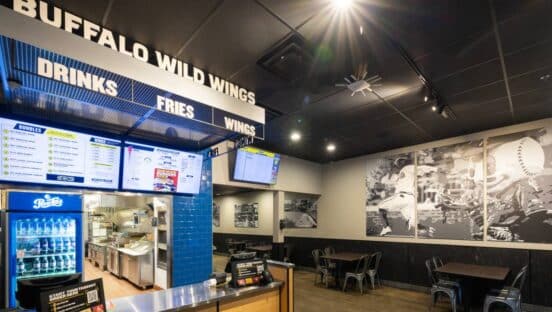Richard Leivenberg, executive vice president for Jody Maroni’s Sausage Kingdom in Venice, California, knows a thing or two about relationships. He practices his people skills each day as he goes toe-to-toe with folks for the sake of his quick-serve operation.
But the relationships that put Leivenberg through the biggest roller coaster of emotions are those with his food suppliers.
“It’s very much like a marriage, there’s love, hate, and everything in between,” Leivenberg says. “With a good supplier, you can complain or argue and at the end of the day, you’ve corrected any problems and made up. If you can’t maintain a good relationship with them, if problems aren’t corrected, you have to reevaluate the situation and consider a divorce.”
In the restaurant industry, experts agree there is a real need for operators to connect with their food suppliers. Establishing a solid working relationship is critical, and the wrong partnership could damage a business.
While some operations opt to look for a short-term relationship by shopping based on price, that may not be best in the long term.
“Simply calling around and shopping for the best price on items is not an effective way to succeed in this business,” says Ashley Rathgeber, procurement director for Pizza Fusion in Fort Lauderdale, Florida. “In today’s market, building good relationships with suppliers is crucial. If they’re not completely on your side, your product is affected.”
To call the restaurant and food supplier relationship a marriage isn’t far-fetched—both sides rely on each other to put food on the table. But marriages are not always perfect, and they can face rough periods where neither side knows or understands what the other is thinking when orders come through or drops are made. So it’s no surprise that a good relationship in the quick-service industry thrives on communication. Kent Short, sales manager for supplier 1st Choice Sales in Fresno, California, says that maintaining communication with individual quick-serve representatives can pay off for suppliers.
“I’ve found that people often change companies; they may go from the supplier to the restaurant side and back, but they stay in the industry,” he says. “As a supplier, I know that the little guy I’m dealing with today could be a buyer with a huge chain tomorrow, so it pays to build relationships.”
Leivenberg says the relationship between a supplier and a quick serve requires some maintenance.
“Over time it may get to a point where one or both sides take the other for granted,” Leivenberg says. “If I’m on the supplier side, that’s why I want regular face-to-face meetings in order to address concerns and keep the relationship fresh.”
Ric Scicchitano, senior vice president of food and beverage for Dallas-based Corner Bakery, agrees that investing in relationships with suppliers is critical for a quick-serve operation.
“We encourage our general managers and area directors to get to know the local distributor reps,” he says. “We have high expectations of our suppliers, but we also treat them well. Ultimately, when a problem comes up, you want the person at the other end of the line to have your best interests at heart. They’ll break their back to get what you need.”
Short says that a strong relationship is also critical from the supplier’s side of the business. “Keeping a strong, honest communication line open is often what makes or breaks an account,” he says. Short witnessed this first-hand a few years ago when his costs for ground beef trim shot up unexpectedly, much higher than the negotiated purchase agreements he arranged with some of his best customers.
“I went to one of them where we had a great relationship and said, ‘Here’s our problem, here are my costs. I know we had this price agreed, but if we can just raise it to the point where I break even, I’d really appreciate it,’” he says.
The chain agreed and Short was later able to reciprocate. “When trim later took a nosedive, we were able to return the favor and give them a very good price.”
Building a partnership with suppliers can also bring some new ideas to a company. “We’re often seeing trends just as they develop as people buy from us,” Short says. “We don’t give away secrets, but there are times when a client is looking for ideas and we can let them know about products that are doing well elsewhere.”
It also helps when people on the purchasing side know what it’s like to be on the other side of the table. “I’ve run bakeries and worked in food manufacturing in the past,” says Greg Creighton, regional vice president at Denver-based Smashburger. “That’s given me insight into what our suppliers do and how they operate best.”
Creighton says trust is a major component in a supplier/quick serve relationship. Suppliers should always be comfortable that their food purchaser won’t renege on an agreement.
“If we commit to a vendor to produce 5,000 pounds of product with a particular seasoning and it doesn’t sell, we don’t just throw up our hands and tell them, ‘Oh well, sell it elsewhere,’” he says. “We’ll buy it whether we’re using it or not. It shows them we know what we’re doing and we respect their business as well. Those kinds of things pay off.”
Of course, quick serves can’t take that trust for granted and expect the supplier to simply know what their purchaser requires.
“If you sit back and expect them to know your needs, you’re going to be short on something when you need it,” Scicchitano says. “They may be close to your business, but they can’t predict it like you can.”
Ultimately, most agree that when both sides are in synch, business can flourish.
“Keeping everybody happy, on our side as well as theirs, is the key to the whole thing,” Scicchitano says. “We rely on each other, so let’s sit together and make it work.”












